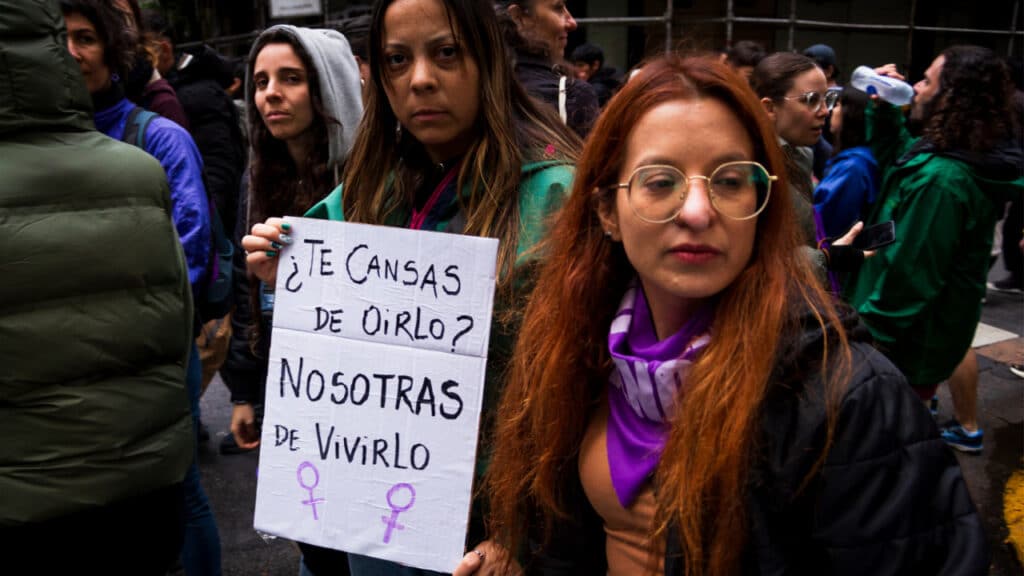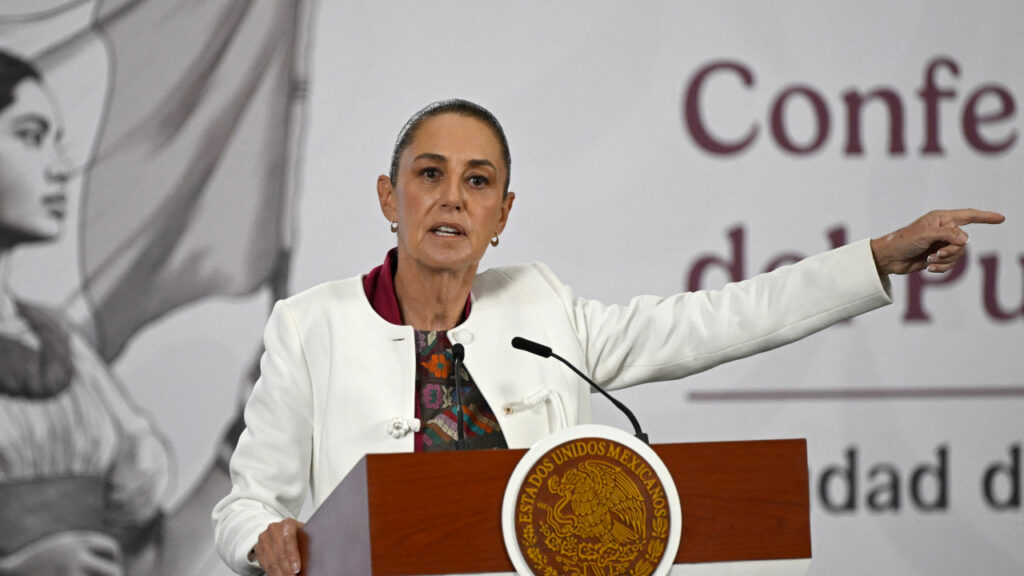
Argentina’s Deadly Warning: How the Far-Right Is Fueling Violence Against Women
A double feminicide raises alarms about the rampant rise of violence against women in Argentina. Pablo Laurta, a “men’s rights activist” and founder of “Varones Unidos,” murdered his ex-partner and her mother in Cordoba. Laurta then kidnapped his 5-year-old son and attempted to flee to Uruguay. The man is also the prime suspect in the murder of an app driver, whose body authorities found dismembered.
Inside the Planning of a Double Feminicide That Shook Argentina
According to authority and media reports, Laurta killed his former partner, Luna Giardina, and her mother on October 11. The man, an Uruguayan citizen, crossed the Argentinian border. He bypassed controls to commit the crime in the victim’s home in Cordoba. His plan began on October 4, when he kayaked through the Uruguay River to Argentina. El Clarin reports that the man was spotted training for about 10 days before paddling the nearly 1km that separates the countries.
Once in Argentina, Martín Palacio, an app driver Laurta knew from previous trips, picked him up from Concordia. Authorities believe that Laurta killed Palacio on the night of October 7, before reaching Federal, a city in the province of Entre Ríos. According to EFE, video footage of a gas station showed Laurta using Palacio’s car alone on the morning of October 8. He reportedly arrived in Córdoba in a Toyota Corolla on the same day. On October 9, authorities found the vehicle incinerated.
Laurta waited till October 11, the day after a restraining order against him expired, to shoot his ex-partner to death. He took his 6-year-old son with him and attempted to go back to Uruguay. However, he was captured the next day in a hotel.
“We are facing a truly methodical criminal mastermind who mastered all the variables and did not act on impulse,” stated Entre Ríos Security Minister Néstor Roncaglia.
Years of Abuse and Obsession Led to Deadly Violence Against Women
Luna Giardina and her mother’s deaths were a terrible conclusion in a long succession of events that denoted Laurta’s hatred toward women. The man had met Giardina in 2018. They had a son the following year, and in 2022, Giardina relocated to Montevideo. However, she left by the end of 2023, taking her son with her. As per Argentinian media outlets, she reported Laurta for physical, economic, psychological, verbal, and sexual violence.
The woman left Uruguay and obtained a restraining order against him. However, that didn’t stop Laurta from stalking her and trying to take his son with him. At the beginning of 2024, Laurta violated the restraining order.
According to El Clarín, Giardina’s neighbors declared that they saw the man on the roof of a house for at least 2 days. He had set a home base next to a water tank where he “urinated, defecated, and slept.”
Additionally, Giardina had reportedly accused Laurta of hacking her phone and having access to her location, conversations, and contacts. Authorities detained and jailed him for 28 days. Upon his release, which El Clarin reports was due to a prison riot, Laurta left Argentina and moved to Uruguay. In March, he was denied access to Argentina, supposedly due to carrying a gun without a permit.
How Online Misogyny Turned Into Real-World Violence Against Women
Before making headlines as the main suspect in the case shaking Argentina, Laurta was famous on the internet for his anti-women stances and anti-women’s rights activism. Laurta was the founder of “Varones Unidos,” a group in the men’s rights activism (MRAs) sphere.
According to the UN, these online spaces “claim to address men’s struggles.” But instead, encourage damaging attitudes and share hate discourse. “These groups are united by an opposition to feminism and misrepresent men as ‘victims’ of the current social and political climate,” a report by the United Nations Secretary General states.
In fact, on the group’s website, Laura justified the violence exerted by men in landmark cases or tried to dismiss real cases, building narratives against women. Upon Laurta’s detention on October 12, the website shared a post that justified his ex-partner’s murder by painting Laurta as a victim. Varones Unidos’ website and social media accounts have since then been suspended or taken down.
However, content from the website continues to make waves online. The archive includes photos of Laurta with Argentinian President Javier Milei’s biographer, Nicolás Márquez, and Agustín Laje, a key figure in Argentina’s extreme-right spaces. Through social media posts, Laje has denied any affiliation with Laurta’s “Varones Unidos,” claiming that he only met Laurta once.
Far-Right Policies Are Fueling a Dangerous Surge in Gender Violence
The double feminicide in Cordoba is the latest addition to a long list of crimes committed against women in 2025 in Argentina. Experts point to the rise of far-right politics in the country, along with active political efforts to dismantle women’s protection systems.
Since Javier Milei took office in 2023, institutions such as the Undersecretariat for Protection Against Gender Violence have been shut down. “For the first time in nearly 40 years, Argentina has no dedicated institution to prevent, punish, and eradicate gender-based violence,” Mariela Belski, executive director of Amnesty International Argentina, told The Guardian in August.
In 2024, one woman was killed every 30 hours in Argentina. The Observatory of Women, Dissidents, and Rights of MuMaLá reported a 15% increase in the first four months of 2025 compared to the same period in 2024. Despite these numbers, at the beginning of the year, the Argentinian president launched a campaign to remove “femicide” from the penal code.
Federal authorities responded by reducing the number of specialized prosecutorial offices. In Tucumán, for example, the offices for gender-based violence cases went from seven to four, according to The Guardian. The English outlet reports that shutdowns happened, although “half of the cases that enter the judicial system are linked to violence against women.”The government has also defunded programs such as “Acompañar,” which aimed to reduce gender-based violence.
Anti-Feminist Rhetoric in Argentina Is Undermining Women’s Safety
Moreover, discourse against women and narratives about women fabricating claims runs rampant in the country. In addition to officials and men’s rights groups, women politicians are part of the group challenging the credibility of women victims.
Senator Carolina Losada, for example, introduced a bill to toughen penalties for false reports on violence against women.
Meanwhile, Patricia Bullrich, Minister of National Security, recently blamed feminism for the rise of crimes against women in the last month. Along with the murder of Luna Giardina and her mother, cases such as a triple feminicide streamed online have triggered national outrage in recent days.
Talking to the streaming service Carajo, Bullrich stated that “empowered” women are responsible for a power imbalance that has “turned against them.”
“What you’re doing is creating the idea that you’re empowered, that you have the power, and that you’re capable of trampling on anyone,” Bullrich said. “What ends up happening is that it backfires on you. The imbalance generated by extreme feminism leads you to situations where the violence is so strong that it ends up destroying the very person who upholds that logic.”




